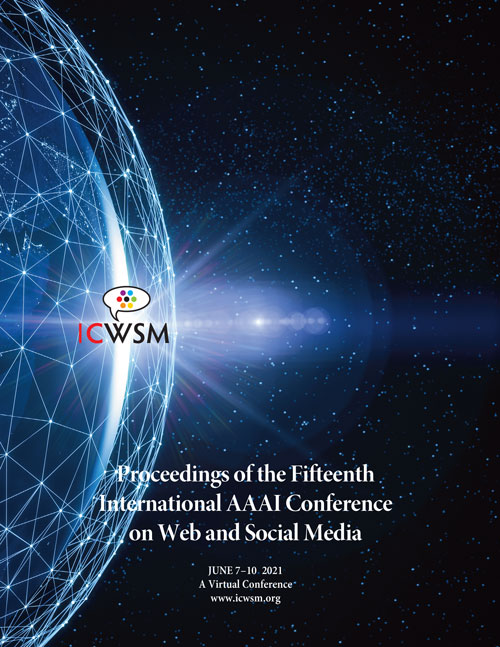Multilingual Contextual Affective Analysis of LGBT People Portrayals in Wikipedia
DOI:
https://doi.org/10.1609/icwsm.v15i1.18077Keywords:
Subjectivity in textual data; sentiment analysis; polarity/opinion identification and extraction, linguistic analyses of social media behavior, Social network analysis; communities identification; expertise and authority discoveryAbstract
Specific lexical choices in narrative text reflect both the writer's attitudes towards people in the narrative and influence the audience's reactions. Prior work has examined descriptions of people in English using contextual affective analysis, a natural language processing (NLP) technique that seeks to analyze how people are portrayed along dimensions of power, agency, and sentiment. Our work presents an extension of this methodology to multilingual settings, which is enabled by a new corpus that we collect and a new multilingual model. We additionally show how word connotations differ across languages and cultures, highlighting the difficulty of generalizing existing English datasets and methods. We then demonstrate the usefulness of our method by analyzing Wikipedia biography pages of members of the LGBT community across three languages: English, Russian, and Spanish. Our results show systematic differences in how the LGBT community is portrayed across languages, surfacing cultural differences in narratives and signs of social biases. Practically, this model can be used to identify Wikipedia articles for further manual analysis---articles that might contain content gaps or an imbalanced representation of particular social groups.Downloads
Published
2021-05-22
How to Cite
Park, C. Y., Yan, X., Field, A., & Tsvetkov, Y. (2021). Multilingual Contextual Affective Analysis of LGBT People Portrayals in Wikipedia. Proceedings of the International AAAI Conference on Web and Social Media, 15(1), 479-490. https://doi.org/10.1609/icwsm.v15i1.18077
Issue
Section
Full Papers

